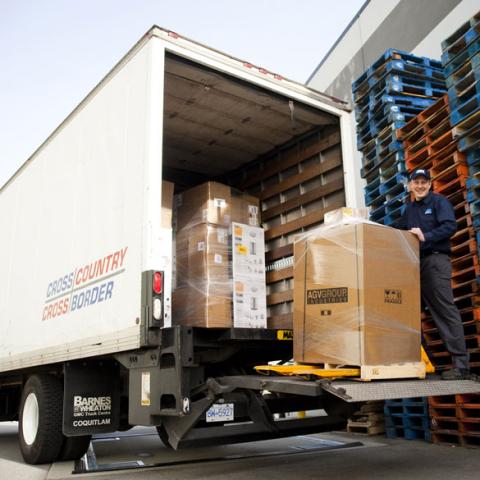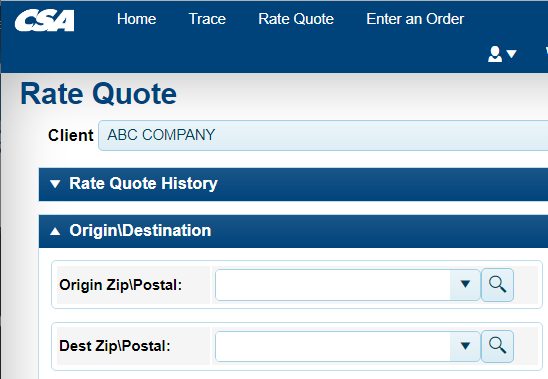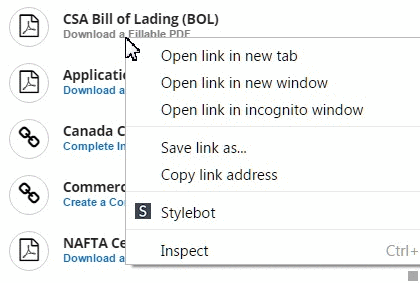The Top Accessorial Charges and What You Can Do to Lower Them
Shipping costs have become a hot topic of discussion within business circles. With the U.S. inflation rate hitting 7.11% in Q4 of 2022, shipping prices have risen globally.
Business owners may see a flat shipping price only to find extra fees on their invoices. These are accessorial charges, and failing to get a handle on them can eat into your profits.
We’ll discuss accessorial charges, why they exist, and how to stop them from getting out of control.
What is an Accessorial Charge?
Accessorials in freight are commonly levied on customers for services that go beyond standard shipping. For example, if your shipping service requires your carrier to invest extra manpower, time, equipment, or fuel to complete the pickup and delivery of your goods, expect to see accessorials added to your invoice.
These fees are usually found on the rules, tariffs, or the schedule of fees published by your freight provider. Note that some freight providers won’t include a list of accessorial charges incorporated into their advertised rates.
For example, FedEx and UPS announced a 5.9% general increase in their shipping rates for 2022. Neither of these companies included the raft of rule changes, additional fees, and other surcharges that would apply to all customers in 2022 in their advertised rate increase.
Some companies choose to pass some of these shipping costs onto their customers to reduce their burden. Ultimately, it’s the business enlisting the carrier’s services that pay.
It underlines the importance of researching to ensure you know any potential accessorial fees before selecting a specific carrier.
Accessorials are often found in Less-than-Truckload (LTL) shipping, but they may also apply to full truckload, intermodal, and small parcel shipping.
Reasons for Accessorial Charges
Accessorial charges in freight can appear on your next invoice for various reasons. In most cases, you can split them into three distinct categories, which are:
- Administrative - Charges are levied if errors with the shipping documentation are discovered upon pickup, such as problems with the bill of lading.
- Equipment - Any shipments requiring additional equipment to load, unload, or transport will invite extra charges. Most carriers will also apply extra charges if special requirements are not specified before pickup.
- In-Transit - In-transit charges may be added to your invoice if there’s limited access to the delivery point, out-of-route miles, or unscheduled layovers.
Not all freight accessorial charges are unanticipated because of mistakes on the part of the customer. Some products may have particular requirements to guarantee they arrive safely and securely. In these cases, businesses can factor in these accessorial fees in advance.
The Most Common Accessorial Fees
Truckload accessorial charges can arise from anything requiring extra legwork on the carrier’s part. Again, some can be anticipated, and others avoided by ensuring all your paperwork is in order.
Some charges will only apply to certain types of shipping, but the most common charges applying to all forms of freight transportation include:
- Advance Notification - The carrier is requested to notify the customer before completing the delivery.
- Additional Stops - All additional stops will be charged.
- After-Hours - Charges for pickups and deliveries made outside of regular business hours.
- Bill of Lading Correction - Errors with the bill of lading must be corrected, which will invite an extra administrative surcharge.
- Fuel Surcharge - Increases in general fuel costs are tacked onto customer invoices to preserve carrier profits. Fuel surcharges were a regular shipping feature in 2022 because gas costs rose 49% from January to June 2022.
- Hazardous Materials - Shipments containing hazardous materials will require additional health and safety precautions to protect shipping personnel.
- Inside Delivery - It’s common practice to charge extra if the driver must go beyond the front door or loading dock to complete the delivery.
- Liftgate - If a hydraulic liftgate is required, the customer will have to cover the cost of the extra equipment.
- Limited Access - If the driver has to do additional work, such as complying with on-site security inspections, you’ll be charged for the extra time.
- Metro Pickup/Delivery - Pickup or delivery on narrow or congested streets inside metropolitan areas typically invites extra trucking accessorial charges.
- Residential - Navigating narrow streets and complying with parking restrictions.
- Storage - Billing by the hour or day if the carrier needs to store a customer’s shipment for any length of time.
Failing to account for these extra surcharges can quickly cause your shipping costs to grow exponentially. Anticipating these charges can support your business in pricing its products and shipping costs correctly.
Can Freight Accessorial Charges Be Avoided?
Believe it or not, carriers don’t want to add extra surcharges to your bill. The shipping industry is highly competitive, so it’s common for companies to increase their rates by the same percentage as their competitors.
However, carriers also need to be realistic about the extra work that goes into fulfilling the needs of their customers. Depending on what your business does, some charges may be unavoidable because standard shipping isn’t suitable for your products.
Thoughtful planning and forecasting can enable you to mitigate the impact of surprise freight accessorials. Here are some common sense steps for avoiding some charges on your next shipment.
Verify Your Delivery Details
Businesses lose thousands of dollars annually because of mistakes in their shipping details. Errors with the bill of lading, issues with the address, and not clarifying delivery window availability are all reasons why charges may be added to a bill.
You can negate many of these issues by adopting an automated shipping platform to reduce the risk of human error.
Triple-check your shipment details before placing your order. Issues discovered after pickup will drain your profit margins.
Be Honest with Your Carrier
Carriers apply these charges because of the extra work that goes into rectifying issues and ensuring your goods reach their chosen destination in pristine condition.
Before booking any shipment, verify your needs and ensure your carrier understands what is required of them. Going the extra mile to equip your carrier with everything they need for smooth freight transportation will help you avoid many additional charges.
In some cases, being a regular or developing a great relationship with your carrier may even win you discounts in the future.
Work with a 3PL
3PLs, or third-party logistics companies, deal directly with trusted carriers on behalf of their clients. Working with a 3PL can unlock the best rates in the business, including reduced accessorial charges.
Choosing a 3PL to handle your shipping needs also decreases much of the work involved in setting up your shipments in the first place. An extra pair of eyes reduces mistakes and delivery re-attempts.
Can I Pass the Charges to My Customers?
In the past, many businesses typically passed all charges onto their customers. However, these days are gone. In one study, 66% of customers expected free shipping with every purchase, regardless of what it was or where they were located.
Passing charges, including freight accessorial surcharges, onto your customers, risks losing future business. The market has changed, meaning customers expect more from the brands they do business with.
Contemporary brands must eat most shipping costs, but through intelligent forecasting and carrier selection, freight fees don’t have to cripple your profits.
Trust CSA Transportation for Your Shipping Needs
Developing a cost-effective shipping model defines your margins as a business. Regardless of your industry, finding a reliable, cost-effective carrier is challenging because of the array of options.
Understanding the impact of extra shipping charges and how to reduce them is difficult, but with CSA Transportation, you have a team on your side, so you’re prepared for anything.
For more than 40 years, the CSA team has guided businesses through the murky waters of domestic and cross-border shipping. Whether you're sending pallets to another state or shipping to Canada, work with a partner that takes the stress out of shipping management.
To access premium rates and lower your shipping costs, get in touch with CSA Transportation today.








